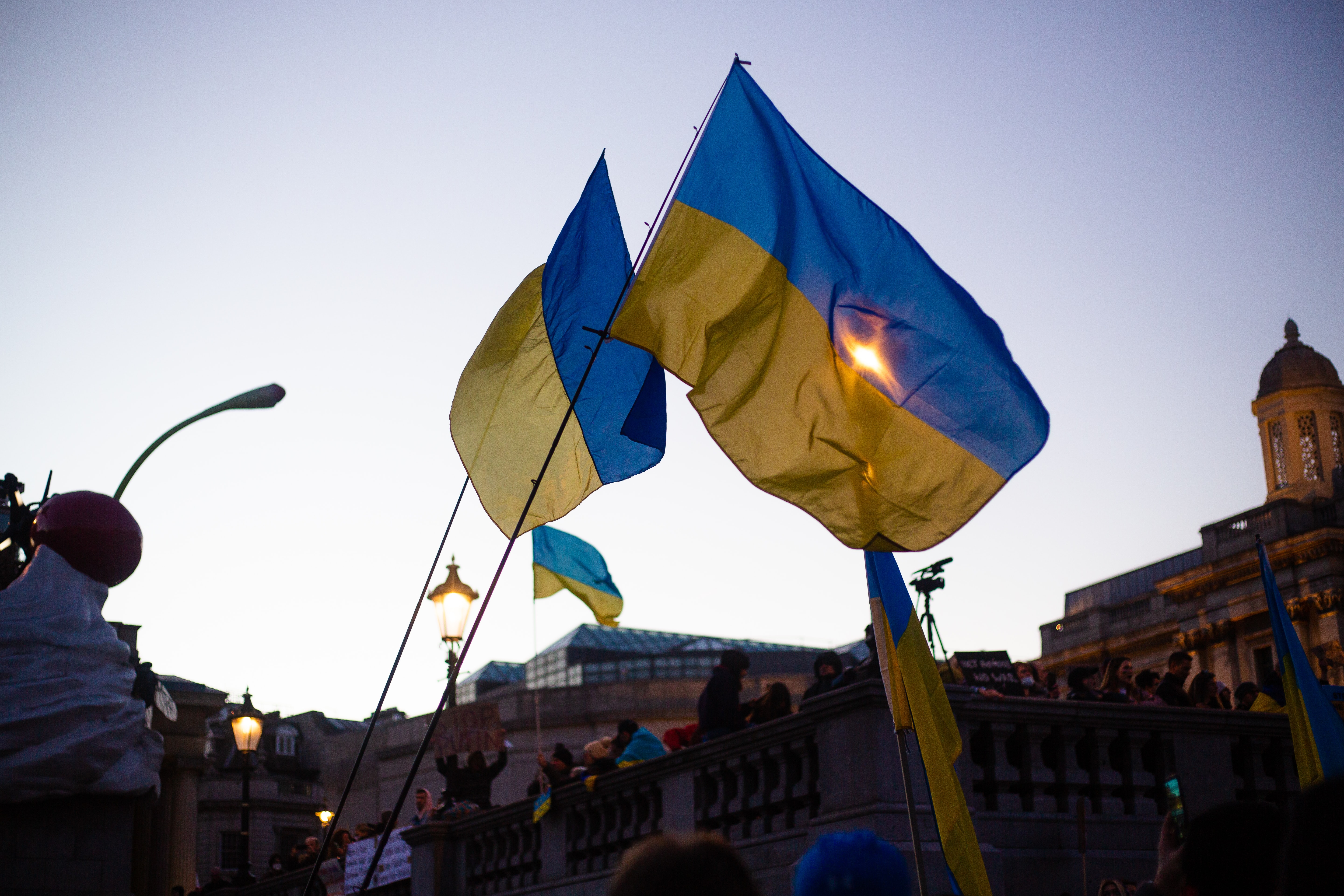A year ago The School of History held an event discussing and introducing some issues of Russia’s war on Ukraine – we talked about Ukraine’s pre-modern history that is erroneously presented by Putin, international diplomacy and the tactics of war.
Over the last year, the University of Kent has been partnered with Kherson State University, and we have developed a special relationship with our colleagues there in the History department. We took this opportunity – one year on – to speak with our colleagues at Kherson State University and hear from them about the place of history in a time of war, thinking about how history has been employed as a weapon of war in this conflict and how war teaches us the importance of history.
We heard presentations from Dr Natalia Kuzovova on ‘The Holodomor of 1932-1932, the Holocaust and other genocides on the territory of Ukraine and their coverage in the educational process’ and the problem of being objective in her research while similar atrocities are happening in Ukraine today; Dr Oleg Boykov on ‘The role of Ukrainian historians in shaping the image of Ukraine in the West’ and the important role of emigrants in establishing Ukrainian history as a global subject of importance (especially Serhii Plokhy, The Gates of Europe: A History of Ukraine (2015)); Mykhailo Domaskin on ‘Stepan Sosnovy, demographer of the Holodomor of 1932-1933 in Ukraine’ and the research work into Soviet archives; and Professor Oleksandr Cheremisin on ‘Southern Ukraine at the end of the 18th century’ and the need to take care in rewriting Ukrainian histories across all periods.
In our discussion, we asked how war changes historians’ personal understanding of history. Colleagues replied that history used just to be in books as numbers and figures, but the war demonstrates centuries of history in Ukraine folding out in front of you every day. We asked how does being a historian help you cope with everyday life during the war. Responses ranged from it doesn’t help at all – war is so cruel, and there is no perspective that helps you to deal with it – to how everyone in the world should feel guilty that we haven’t learnt lessons from the Second World War and that we weren’t prepared for this war.
Perhaps the most poignant contribution for our understanding of the importance of history in war was from Oleg Boykov. He recounted being told by a professor of Russian history that he had chosen the wrong subject, because ‘Historians are the first who are shot [during war] because of their knowledge’. During the occupation of Kherson he came to realize the reality of this danger of being a historian dealing with truth.

